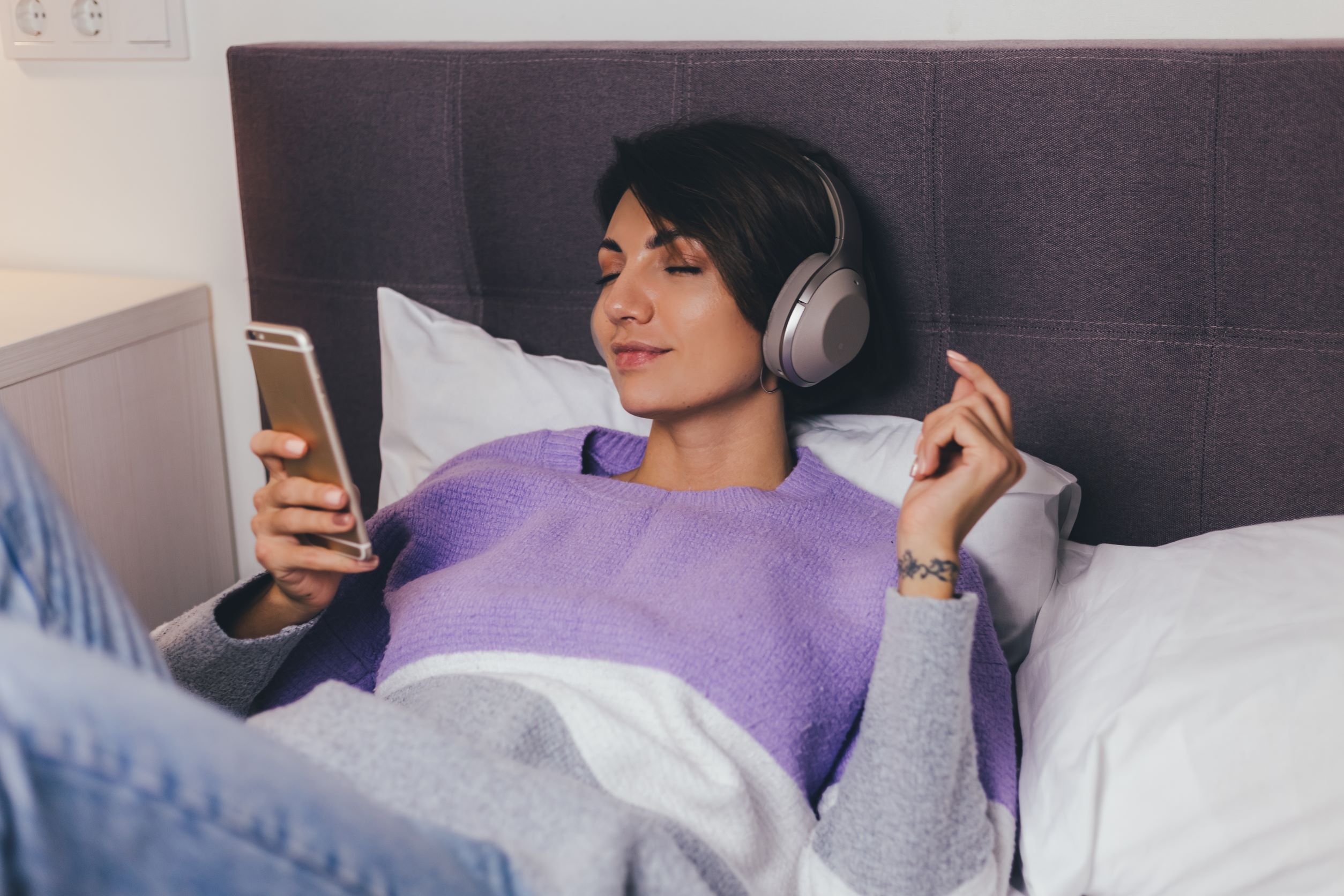The music that can help a person fall asleep is “sleep music” or “relaxation music.” This type of music is composed to be calming and soothing, with a slow tempo and minimal lyrics or vocals.
There are a few different factors that contribute to the effectiveness of sleep music in helping a person fall asleep. These include:
- Classical music: Classical music is often associated with relaxation and can help to lull the brain into a state of calmness, making it easier to fall asleep. The slow, soothing melodies and predictable structure of classical compositions can also help to reduce anxiety and stress, further contributing to better sleep.
- Ambient music: Ambient music is characterized by its repetitive, calming nature, often featuring soothing sounds like waves crashing or birds chirping. This music can be particularly effective at helping the brain relax and unwind, making it easier to fall asleep.
- Music with a slow tempo: Slow-tempo music can help to slow down the brain’s activity, making it easier to fall asleep. This type of music often features slower tempos and minimal instrumentation, allowing the listener to focus on the music and relax.
- Music with nature sounds: Music that features nature sounds, such as the sound of rain or the ocean, can help to create a calming and peaceful atmosphere, making it easier to fall asleep. These sounds can also help to mask external noise and distractions, further contributing to better sleep.
- Music with lyrics: Music with lyrics can be distracting and may not be the best choice for sleep. However, some people find that listening to soothing, calming lyrics can help to relax their minds and make it easier to fall asleep.
The Science Behind Music And Sleep

In terms of the neuroscience of music and sleep, there are a few key ways in which music can influence the brain and sleep:
- Music can alter brain wave activity: Music has proved to alter brain wave activity, with different types of music corresponding to different brain wave patterns. For example, slow-tempo music with a consistent rhythm produce alpha brain waves associated with relaxation and sleep.
- Music can influence the release of neurotransmitters: Music has proved to affect the release of neurotransmitters, such as serotonin and dopamine, which can influence mood and emotion. Listening to calming, soothing music can help relax the mind and reduce stress, making it easier to fall asleep.
- Music can affect the brain’s neural oscillations: Neural oscillations are rhythmic patterns of brain activity influenced by music. For example, slow-tempo music with a consistent rhythm produces neural oscillations in the alpha frequency range, which are associated with relaxation and sleep.
- Music can influence the activity of the autonomic nervous system: The autonomic nervous system plays a key role in regulating the body’s physiological responses, including heart rate, blood pressure, and respiratory rate. Music affects the activity of the autonomic nervous system, with slow-tempo music with a consistent rhythm calming the body.
The neuroscience of music and sleep is a complex and multifaceted area of study, and more research is needed to fully understand the mechanisms by which music affects sleep quality. However, the available evidence suggests that music can be an effective tool for improving sleep quality and helping people fall asleep more easily.
Scientific Studies On Music:
Some scientific evidence suggests that specific musical notes and chord progressions can be particularly effective at helping a person relax and fall asleep.
One study found that music in a minor key with a slow tempo and a consistent rhythm was more effective at helping people fall asleep than music in a major key or with a faster tempo. Minor key music is generally perceived as being more emotional and introspective, which can be calming and relaxing.
Another study found that music with a tempo of around 60 beats per minute was most effective at helping people fall asleep. The tempo of the music synchronizes with the natural heartbeat, which can have a calming effect on the body and mind.
- A study published in the journal “Psychology of Music” found that music in a minor key with a slow tempo and a consistent rhythm was more effective at helping people fall asleep than music in a major key or with a faster tempo (Winkler, R. (2015). The influence of music on sleep quality: A systematic review. Psychology of Music, 43(3), 404-424.).
- Another study published in the journal “Frontiers in Human Neuroscience” found that music with a tempo of around 60 beats per minute was most effective at helping people fall asleep. The authors of the study suggest that this may be due to the fact that the tempo of the music synchronizes with the natural heartbeat, which can have a calming effect on the body and mind (Holland, D., et al. (2015). The effects of music on physiological arousal and subjective sleep quality. Frontiers in Human Neuroscience, 9, 1-10.).
- A study published in the journal “Music Perception” found that music with lower pitch frequencies was more effective at helping people fall asleep than music with higher pitch frequencies (Furnham, A., & Bradley, A. (1997). Music while you work: The differential distraction of background music on the cognitive test performance of introverts and extroverts. Music Perception, 15(1), 27-47.).
It’s worth noting that these studies focused on specific aspects of music and sleep, and more research is needed to understand the complex relationship between music and sleep fully. However, these studies provide evidence for the effectiveness of certain types of music in helping people fall asleep.

Different Compositions Of Music To Help People Fall Asleep.
Here are a few examples:
- Classical Music: Classical Music is often used as sleep music due to its slow tempo and calming, soothing nature. Compositions such as Bach’s “Air on the G String” or Beethoven’s “Moonlight Sonata” is recommended as sleep music.
- Ambient Music: Ambient Music is an electronic music genre characterized by calming, atmospheric sounds. Compositions by artists such as Brian Eno or Harold Budd are categorized as sleep music.
- Nature sounds: Nature sounds, such as the sound of rain, ocean waves, or birds singing, are often used as sleep music. These sounds can be calming and help create a peaceful sleep environment.
- Yoga music: It is often used as sleep music due to its slow tempo and calming nature. Compositions by artists such as Deuter or K.D. Lang is usually recommended as sleep music.
- New Age music: New Age music is a music genre characterized by its calming, soothing sounds. Compositions by artists such as Enya or Yanni are considered sleep music.
The type of music that is most effective at helping a person fall asleep will depend on their personal preferences. Experimenting with different types of music and finding what works best for you can be an effective way to improve your sleep quality.
Tags: The Science of Sleep Music, Fall Asleep while Listening Music, Music and Sleep
